I am a certified cybersecurity analyst with an avid interest in ethical hacking. I’m also a computer programmer. I enjoy the thrill of solving problems through programming and I have been doing so since 2019. Feel free to contact me here.
Muhammad Abdullahi Articles

Automated Pothole Detection Using YOLO in Python
Learn how to build an automated pothole detection system using YOLOv5. This step-by-step tutorial covers environment setup, model training with a custom dataset, and running inference for real-time detection on images.
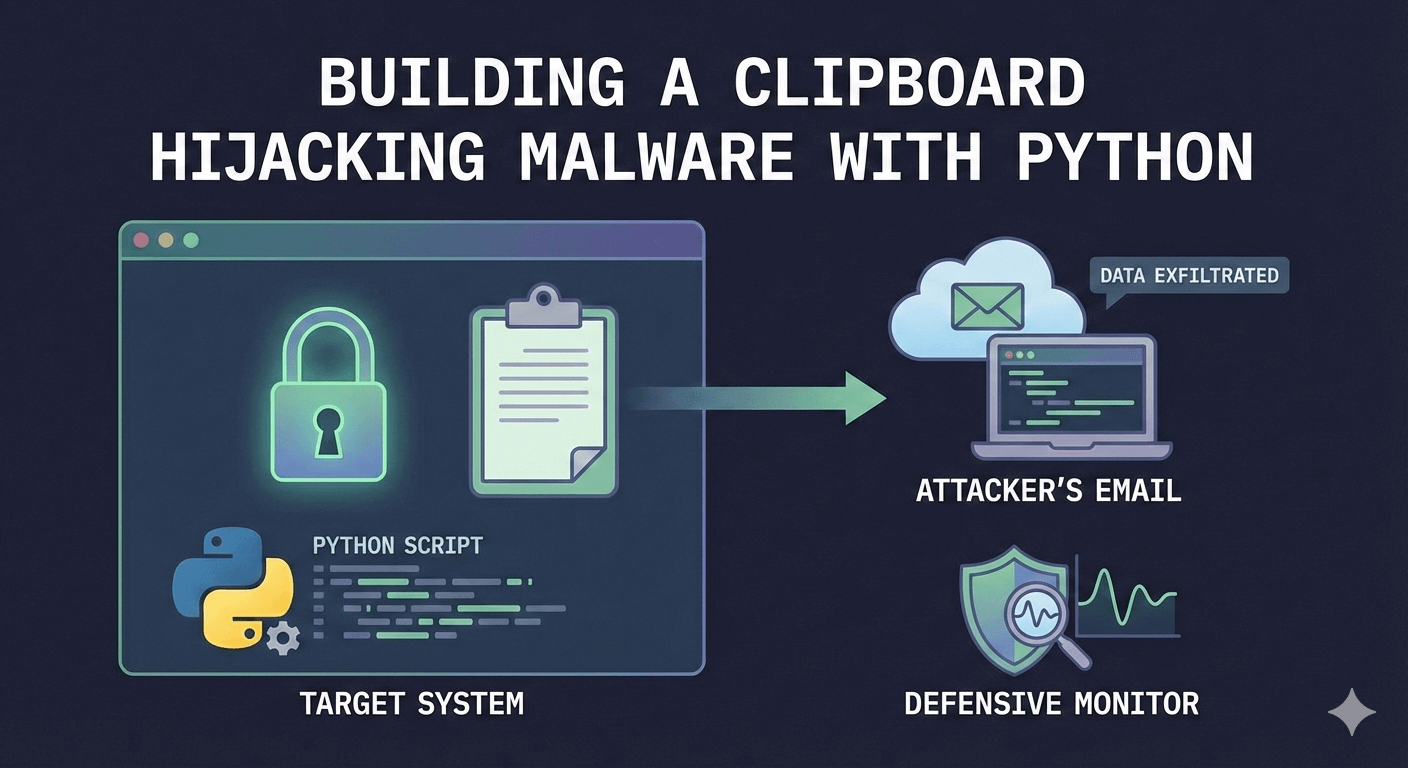
Building a ClipBoard Hijacking Malware with Python
Learn how to build a clipboard hijacking tool that monitors copied content, silently replaces email addresses and exfiltrates clipboard data from a target and sends to the attacker remotely via email. You'll also learn to build defensive monitor to detect unauthorized clipboard modifications on Windows and Linux
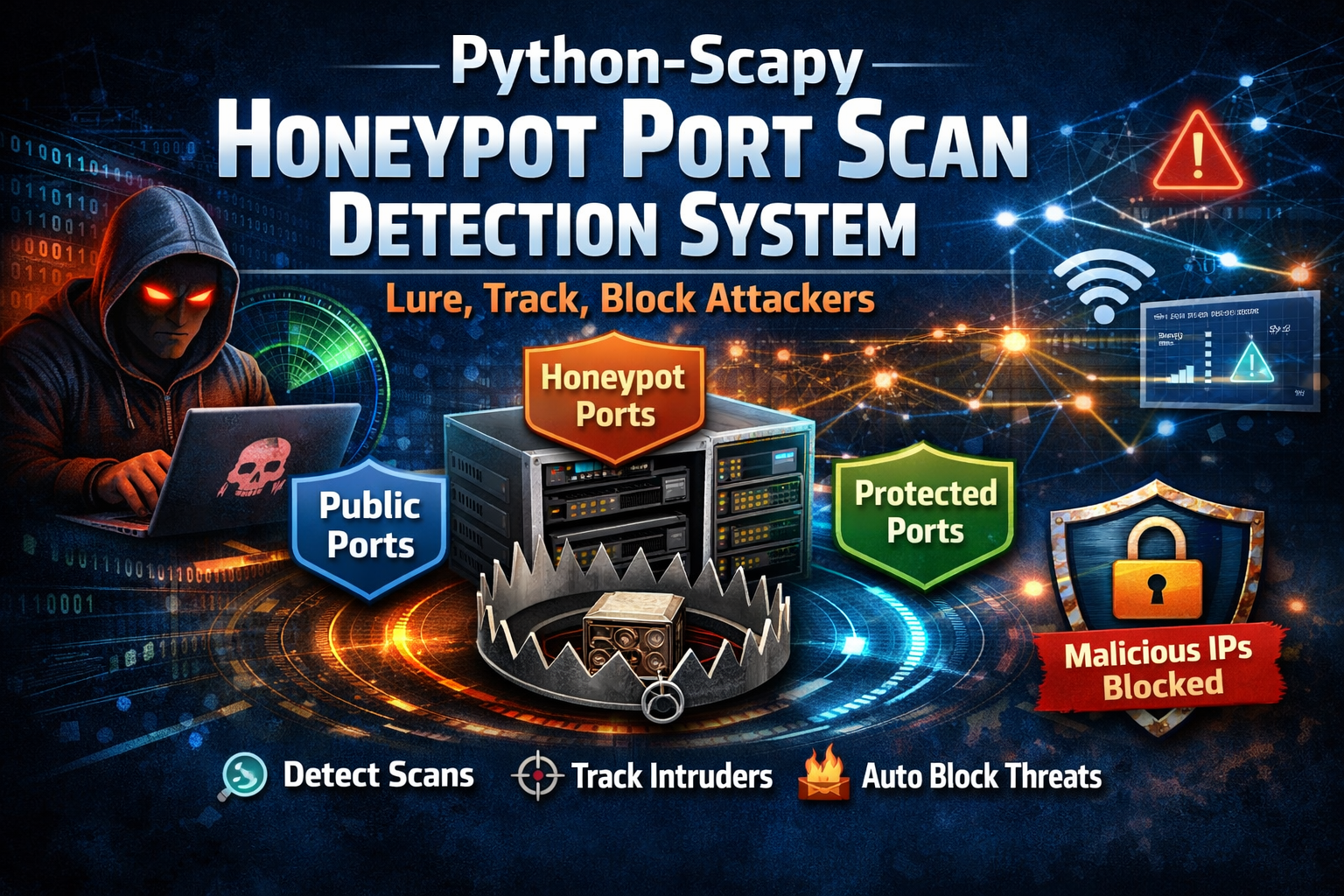
Building a Honeypot Defense System with Python and Scapy
Build a Python-based honeypot defense system with Scapy that detects port scanning, lures attackers using decoy ports, tracks reconnaissance activity, and automatically blocks malicious IPs.
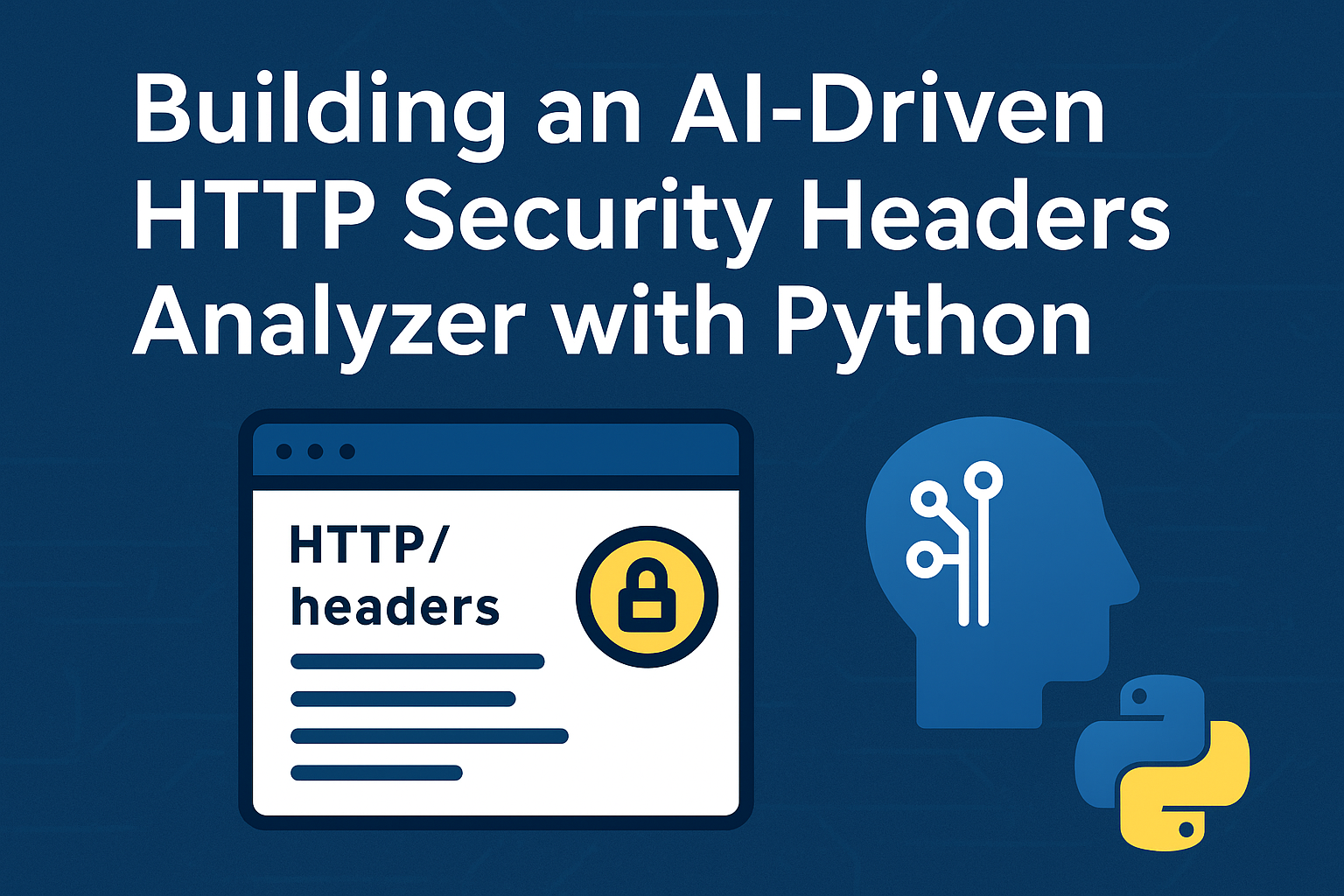
Building an AI-Driven HTTP Security Headers Analyzer with Python
Build a Python tool that checks HTTP security headers and uses DeepSeek AI to provide practical insights, missing protections, and security recommendations.
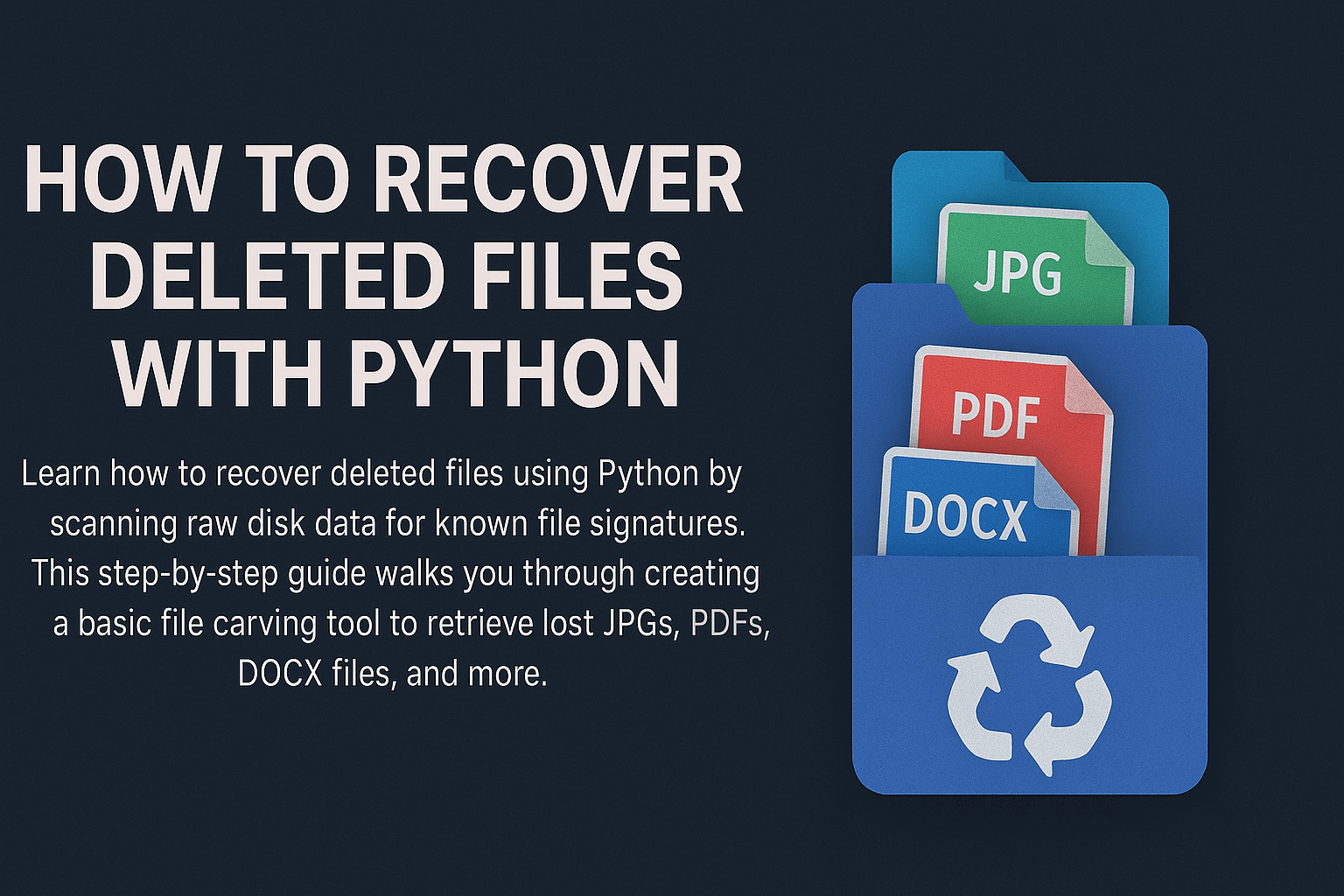
How to Recover Deleted Files with Python
Learn how to recover deleted files using Python by scanning raw disk data for known file signatures. This step-by-step guide walks you through creating a basic file carving tool to retrieve lost JPGs, PDFs, DOCX files, and more.

YouTube Video Transcription Summarization with Python
Learn how to transcribe and summarize YouTube videos using Python! This tutorial covers extracting video transcripts with YouTubeTranscriptApi, processing text with NLTK, and generating AI-powered summaries using OpenRouter's Mistral model.

Crafting Dummy Packets with Scapy Using Python
Discover how to create custom dummy packets using Python's Scapy library to simulate network traffic, test firewall rules, and monitor latency. This tutorial covers practical examples for TCP, ICMP, and UDP packets, with real-world applications in network performance monitoring.
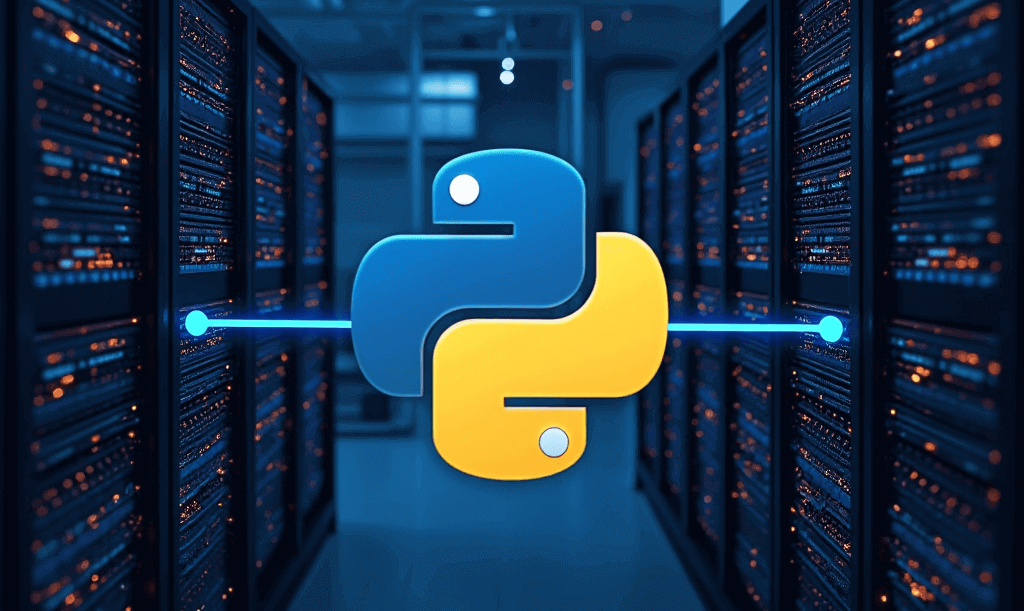
How to Build a TCP Proxy with Python
Learn to build a TCP proxy in Python to intercept and analyze real-time data flow between client and server. Ideal for debugging, protocol analysis, and understanding network communication, this guide provides step-by-step implementation and practical examples.

How to Build a Custom Netcat with Python
Learn how to create a custom Python-based Netcat tool for network debugging, file transfers, and remote command execution. Perfect for networking and cybersecurity enthusiasts, this guide provides hands-on code and practical examples.

3 Best Online AI Code Generators
Explore the top 3 AI code generators—CodeConvert, ZZZ Code AI, and CodingFleet. Compare their features, pros, and cons to find the best tool for your coding needs, with CodingFleet leading for its advanced features and versatility.

How to Validate Credit Card Numbers in Python
Learn to validate credit card numbers using the Luhn algorithm in Python. This tutorial covers the algorithm steps, card type detection, and handling multiple card numbers from a file.

How to Make a Clickjacking Vulnerability Scanner with Python
Learn how to create a Python script to detect clickjacking vulnerabilities in websites. This tutorial covers the basics of clickjacking, protection methods, and provides step-by-step instructions to build a simple yet effective clickjacking vulnerability scanner.

How to Perform Reverse DNS Lookups Using Python
Learn how to perform reverse DNS lookups and find other websites hosted on the same server using Python and the ViewDNS API. Perfect for network administrators and cybersecurity professionals.
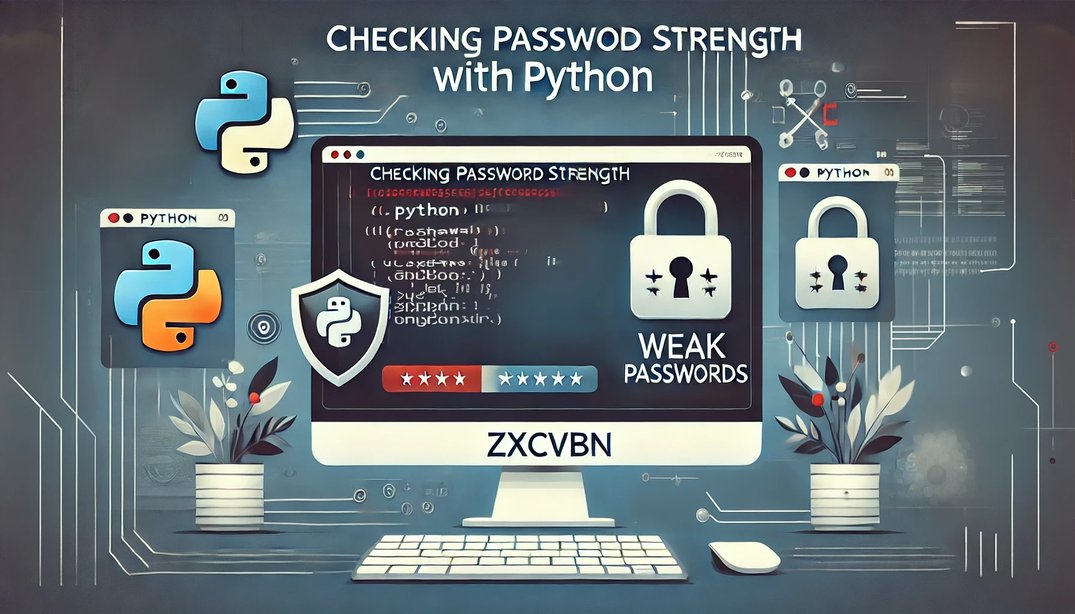
How to Check Password Strength with Python
Learn how to check password strength in Python using the zxcvbn library. This guide walks you through installing zxcvbn, importing necessary libraries, and creating functions to test single and multiple passwords. You'll securely input passwords and receive feedback on their strength.

How to Remove Persistent Malware in Python
Learn how to detect and remove persistent malware using Python in this step-by-step tutorial. Explore methods for automating malware removal across Windows and Linux systems by manipulating startup entries and crontab files.

How to Make Malware Persistent in Python
Learn how to achieve persistence for malware using Python, ensuring it remains active after system reboots. This tutorial guides you through implementing persistence techniques on both Windows and Linux systems, from modifying registry settings to setting up cron jobs.


